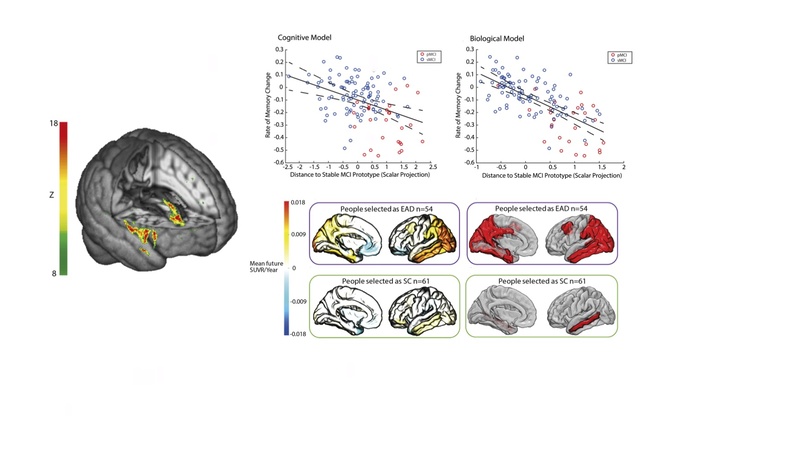Modelling prognostic trajectories in Alzheimer's disease
The earliest stages of Alzheimer’s disease (AD) involves interactions between multiple pathophysiological processes. Although these processes are well studied, we still lack robust tools to predict individualised trajectories for early AD individuals (i.e. non-demented). Predicting these dynamic changes has major implications for timely and effective clinical management in AD. To generate individualised trajectories in early AD interactions between the key cognitive and pathological drivers of AD need to be captured and quantified. To achieve this we use multidimensional feature generation methods as well as machine learning algorithms to generate prognostic measures using baseline data. Using our machine learning approaches we are able to predict future changes cognitive and neuro-pathological changes due to Alzheimer’s disease. We show that individual trajectories of cognitive decline can be predicted in individuals with Mild Cognitive Impairment (MCI) using either cognitive or biological baseline data. Further, we show using our machine learning approach that individualised trajectories of tau accumulation (a key pathological driver of AD) can be robustly predicted in MCI and cognitively normal individuals.

